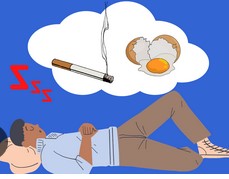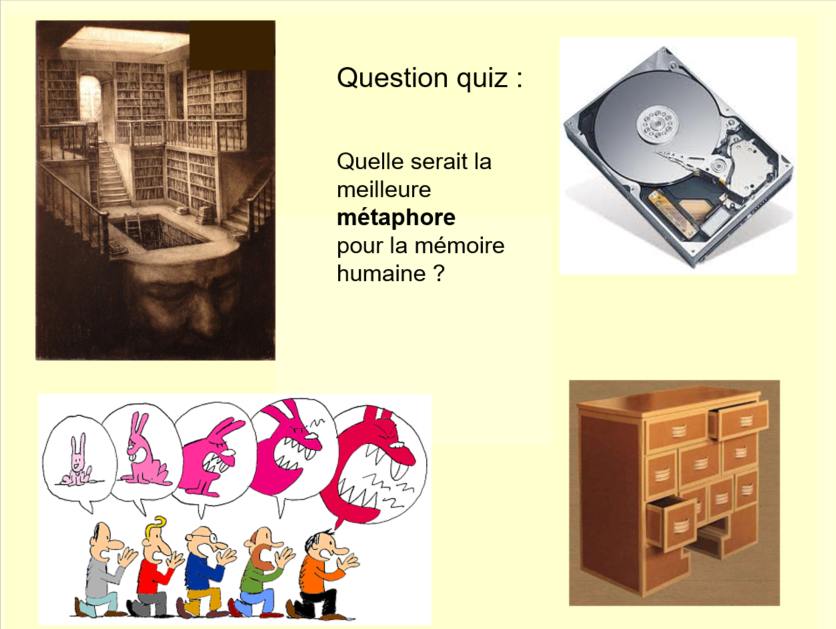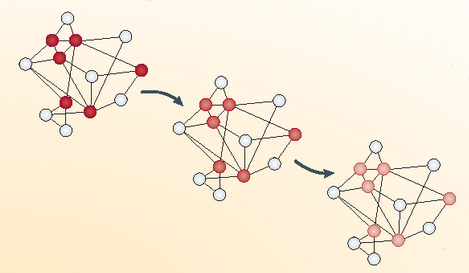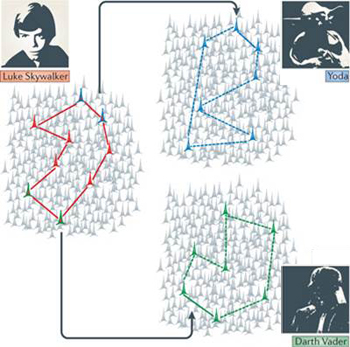Tuesday, 25 June 2024
Earworms as an excuse to talk about mental simulations and working memory

This week I’d like to talk about an intriguing phenomenon: earworms, those bits of songs that start playing in your head for hours and sometimes even days on end. More specifically, I’d like to talk about a comment that biologist John Medina makes about earworms in an entry entitled “As the Worm Turns” in his substack “John Medina’s Brain Rules”. I call it a comment because, as Medina admits right off, no one really knows much about what causes earworms. But the two neurological considerations that he raises are still interesting. They relate to two key concepts that I of course discuss on my website: mental simulation and working memory. (more…)
Memory and the Brain | Comments Closed
Thursday, 12 October 2023
Targeted memory reactivation during sleep

Today I’d like to talk a bit about learning passively while you sleep—for example, by playing a recording. As it turns out, this process seems to work only for very simple forms of associative learning under very specific conditions. You can’t learn anything completely new in your sleep. So, for example, if you play Spanish or French language tapes during the night, without doing anything else, you won’t get any results, except for maybe a bad night’s sleep. (more…)
Sleep and Dreams | Comments Closed
Tuesday, 1 June 2021
Quiz about memory
 Which of the following is your memory most like: 1) a huge library where all your memories are shelved? 2) a computer hard drive where data are stored in a binary code of 0s and 1s? 3) a dresser with lots of drawers full of memories? 4) the game of telephone, where one person whispers a message to the next until it ends up being distorted? (more…)
Which of the following is your memory most like: 1) a huge library where all your memories are shelved? 2) a computer hard drive where data are stored in a binary code of 0s and 1s? 3) a dresser with lots of drawers full of memories? 4) the game of telephone, where one person whispers a message to the next until it ends up being distorted? (more…)
Memory and the Brain | Comments Closed
Tuesday, 22 October 2019
Why forgetting can save your life

When we think about human memory, it tends to be with the implicit assumption that more is always better. But more and more neurobiologists are now asserting the opposite: that forgetting makes us more efficient! This raises two important questions: 1) forgetting what? and 2) more efficient in doing what? Science blogger Tom Siegfried attempts to provide the answers in an article published in January 2019, entitled “Why forgetting may make your mind more efficient.” (more…)
Memory and the Brain | No comments
Wednesday, 10 October 2018
The Neuronal Traces of Our Conceptual Memories

Much has been written on the question of how our memories are physically represented in our brains. In this post, I discuss two answers that have been competing with each other, so to speak, for a number of years. In very general terms, according to one of these answers, our memories are distributed across vast populations of neurons, numbering in the millions (out of the roughly 16 billion neurons in the cortex as a whole). According to the other answer, these memories are instead recorded in much smaller, sparser populations of neurons, in particular in the hippocampus, which is a very old part of the cortex in evolutionary terms and is highly involved in memory.
In recent years, the latter, “sparse” conception of memory, in which at most a few thousand neurons are activated by any given memory, seems to be gaining the upper hand, or at least that is what I gather from two recent articles touting its merits. (more…)
Memory and the Brain | No comments







